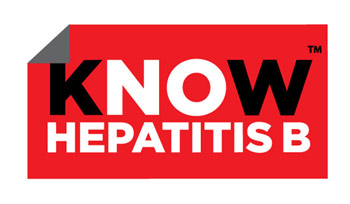Hepatitis B is the most common serious liver infection in the world. It is caused by the hepatitis B virus (HBV) which is 100 times more infectious than the AIDS virus. HBV is most efficiently transmitted through contact with blood and body fluids of an infected person. This can occur through direct blood-to-blood contact, sex, illicit drug use, and from an infected mother to her newborn during delivery. HBV spreads because many people are unaware they are infected with the virus and unknowingly pass it on to those who are in close contact with them.
 Most people are able to fight off an HBV infection and clear the virus from their blood. However, 5-10% of adults, 30-50% of children, and 90% of infants will develop chronic infection which can lead to liver failure, cirrhosis (scarring) or cancer of the liver. Approximately 350 million persons worldwide are chronically infected with HBV, including about 1.25 million in the United States. About 5,000 Americans die of hepatitis B-related liver complications including cirrhosis and liver cancer each year.
Most people are able to fight off an HBV infection and clear the virus from their blood. However, 5-10% of adults, 30-50% of children, and 90% of infants will develop chronic infection which can lead to liver failure, cirrhosis (scarring) or cancer of the liver. Approximately 350 million persons worldwide are chronically infected with HBV, including about 1.25 million in the United States. About 5,000 Americans die of hepatitis B-related liver complications including cirrhosis and liver cancer each year.
Fortunately, there is a safe and effective vaccine to protect against hepatitis B infection. It is recommended that all infants, children and adolescents up to the age of 18 receive the hepatitis B vaccine. The vaccine is also recommended for adults who may be at risk for infection.
Related Information
-
Get Tested for Hepatitis B (PDF, 1.74MB, 1pg.)
-
Get Tested for Hepatitis B (Asian) (PDF, 2.10MB, 1pg.)
-
-
What's the difference between hepatitis A, B and C? (PDF, 70KB, 1pg.)
-
If you are a health care provider, learn more about hepatitis B and the management of patients infected with hepatitis B.
Give birth to the end of Hep B. Visit www.immunize.org/protect-newborns
Hépatite
Page Source: NYSDOH Web site; Revised July 2012, Accessed July 2016.

